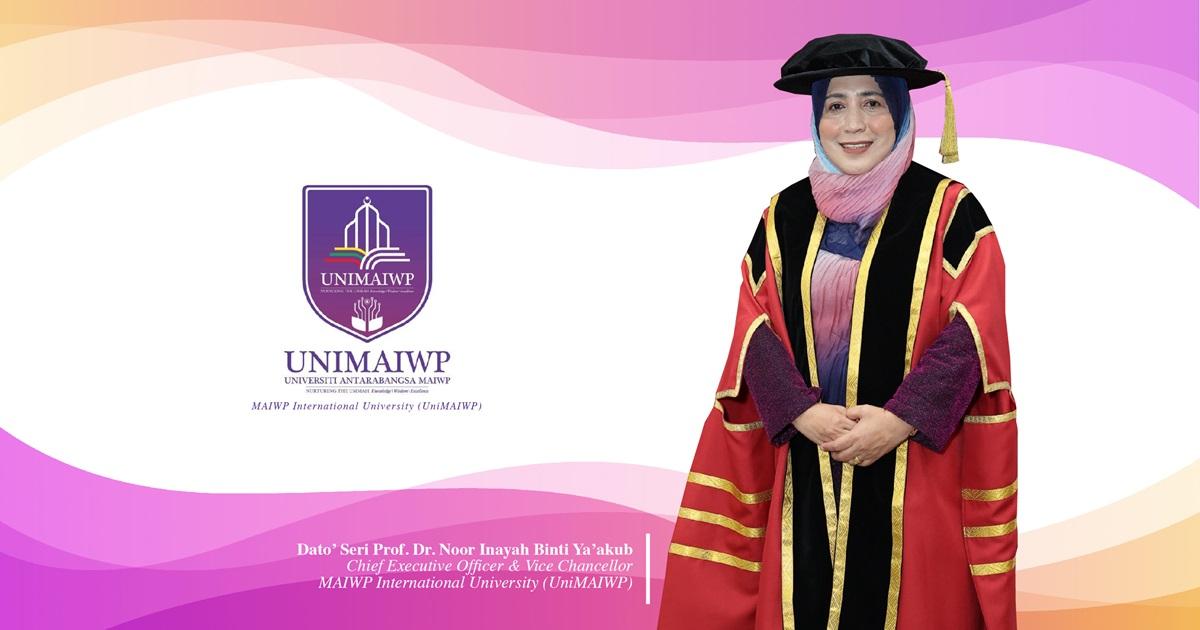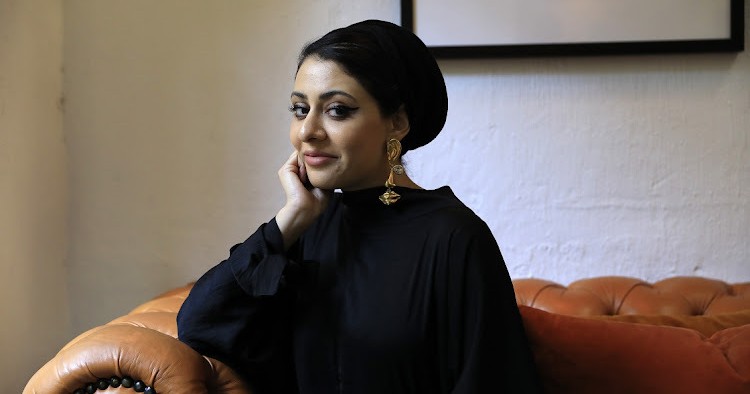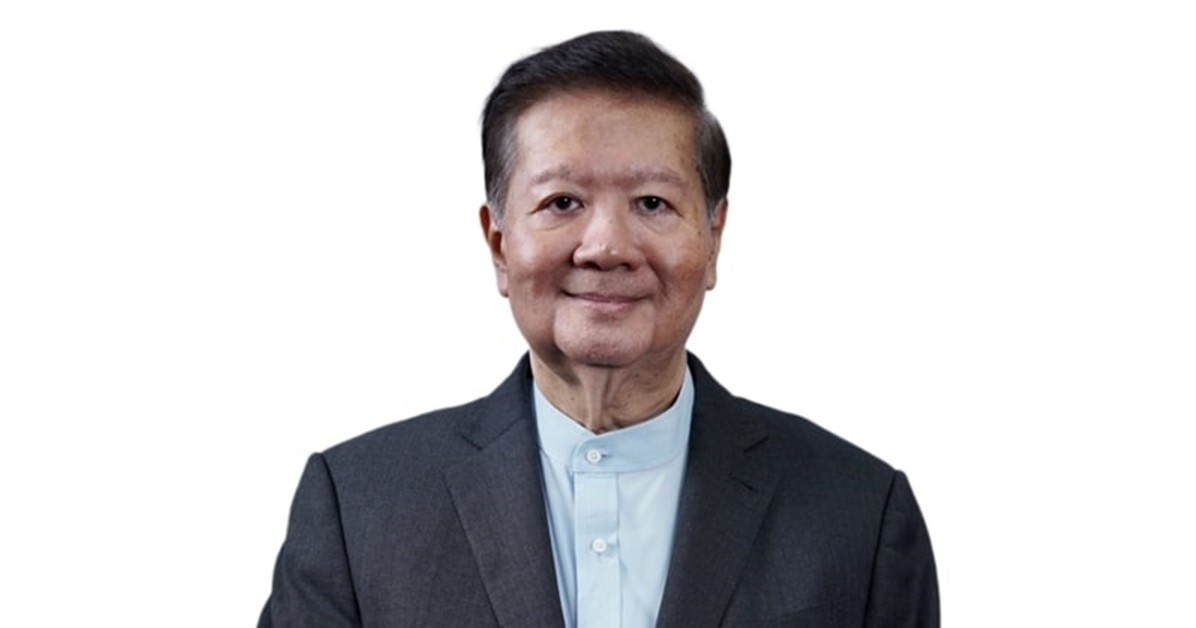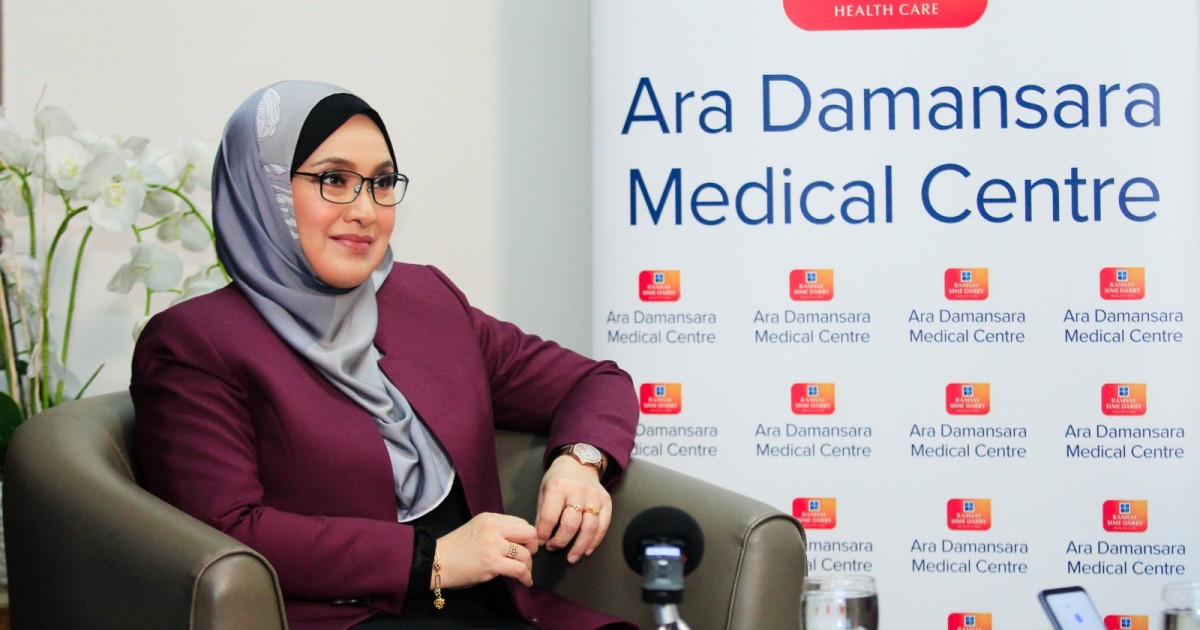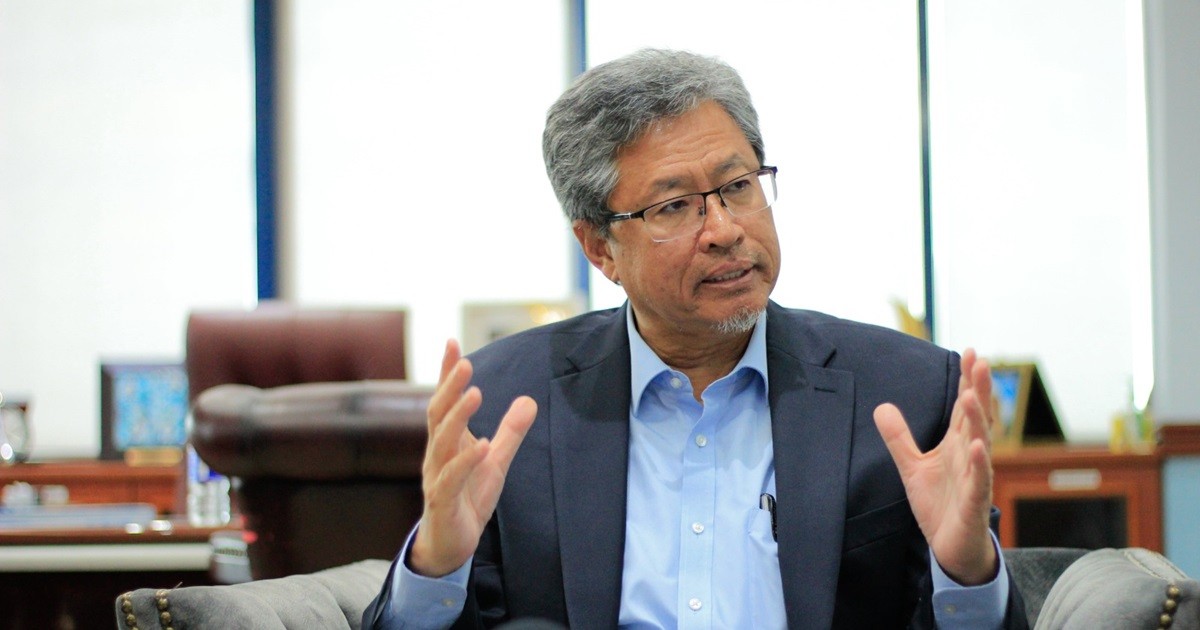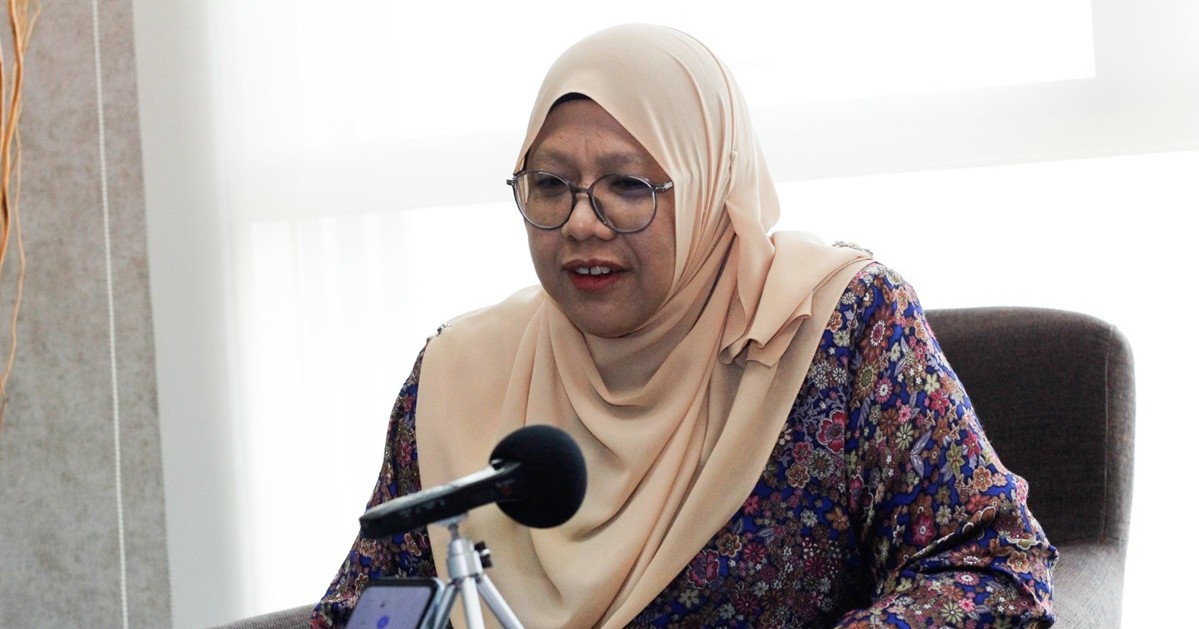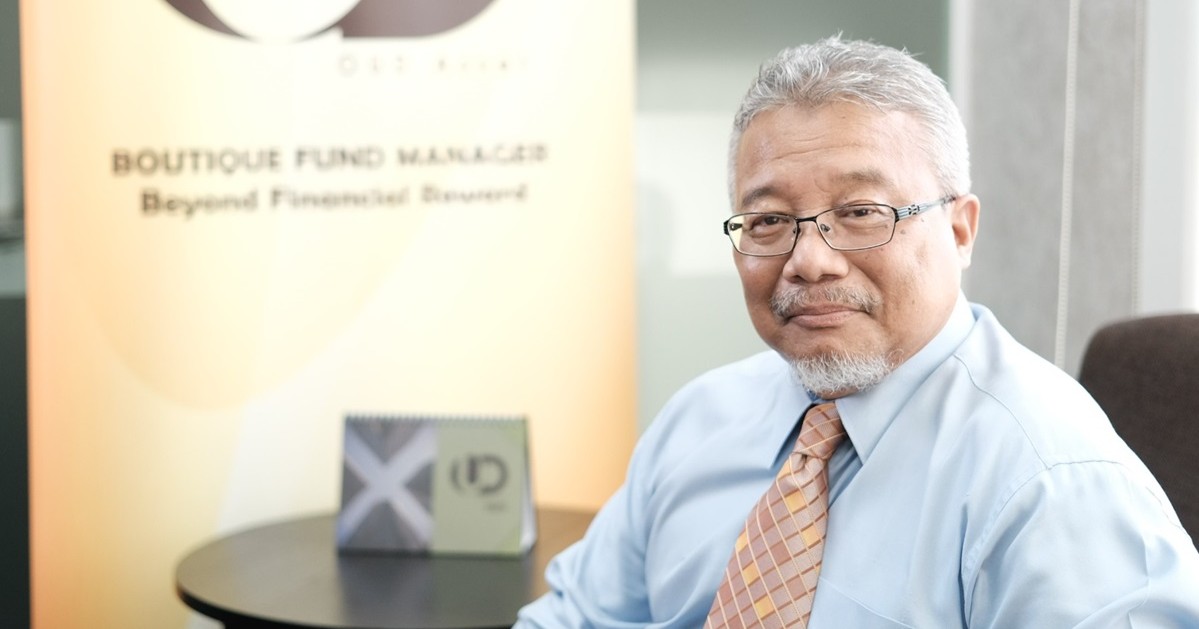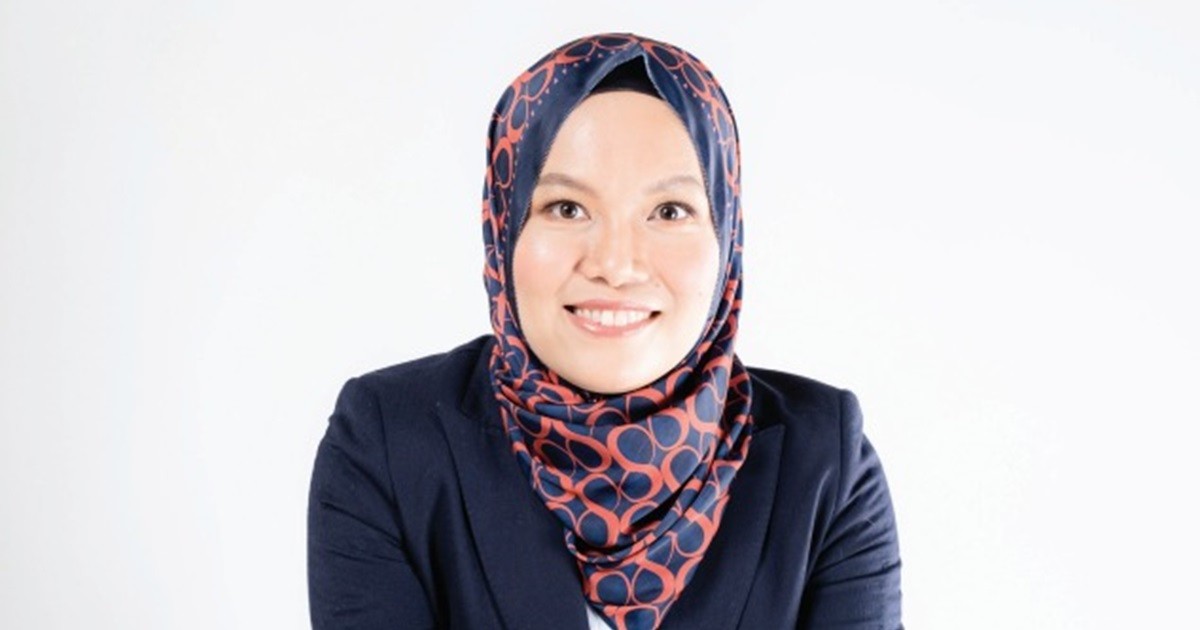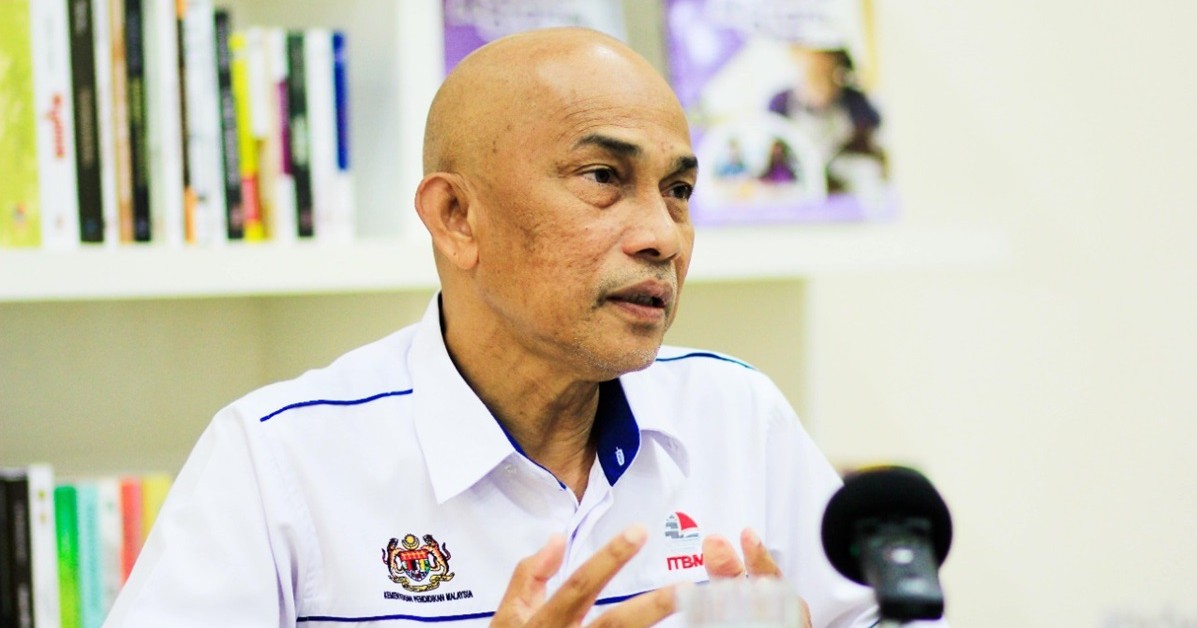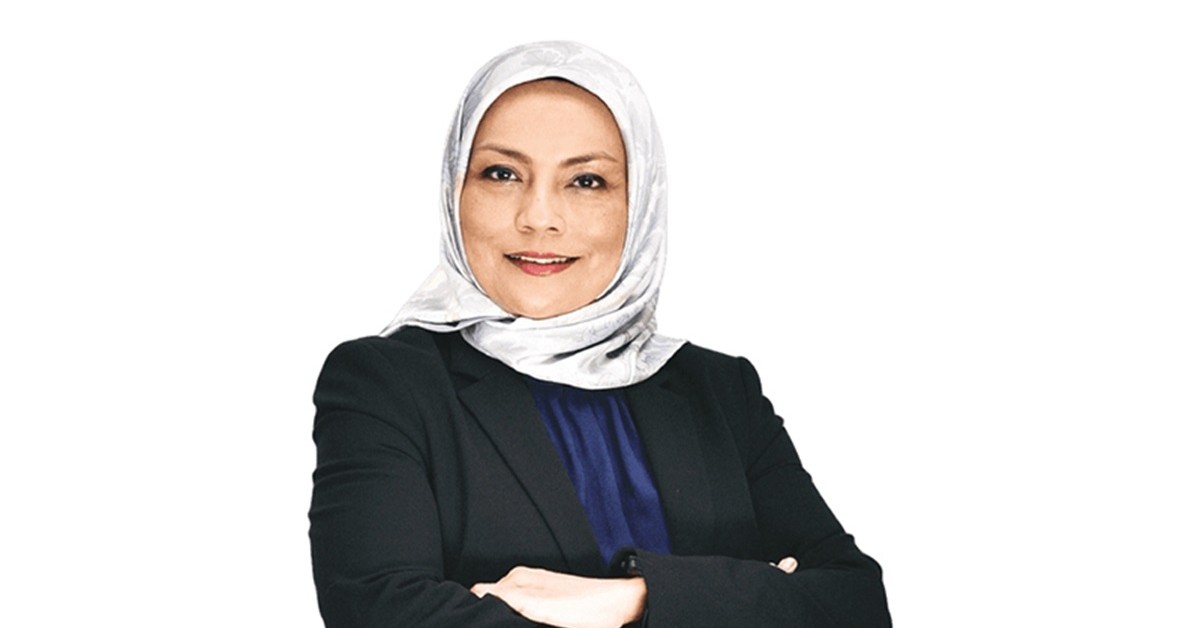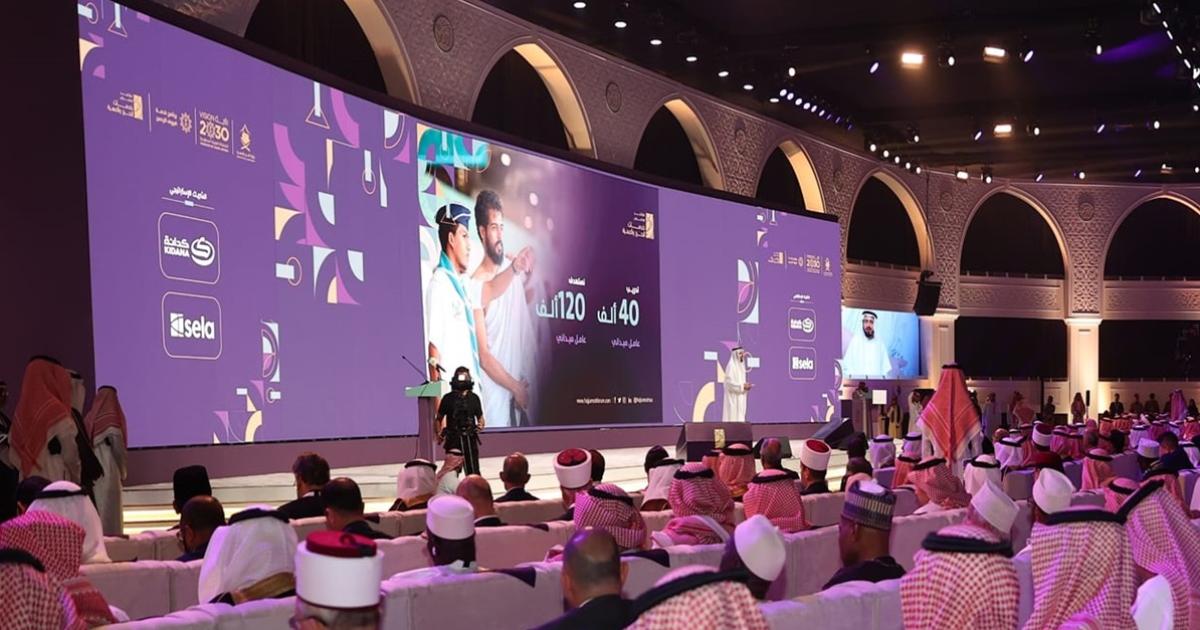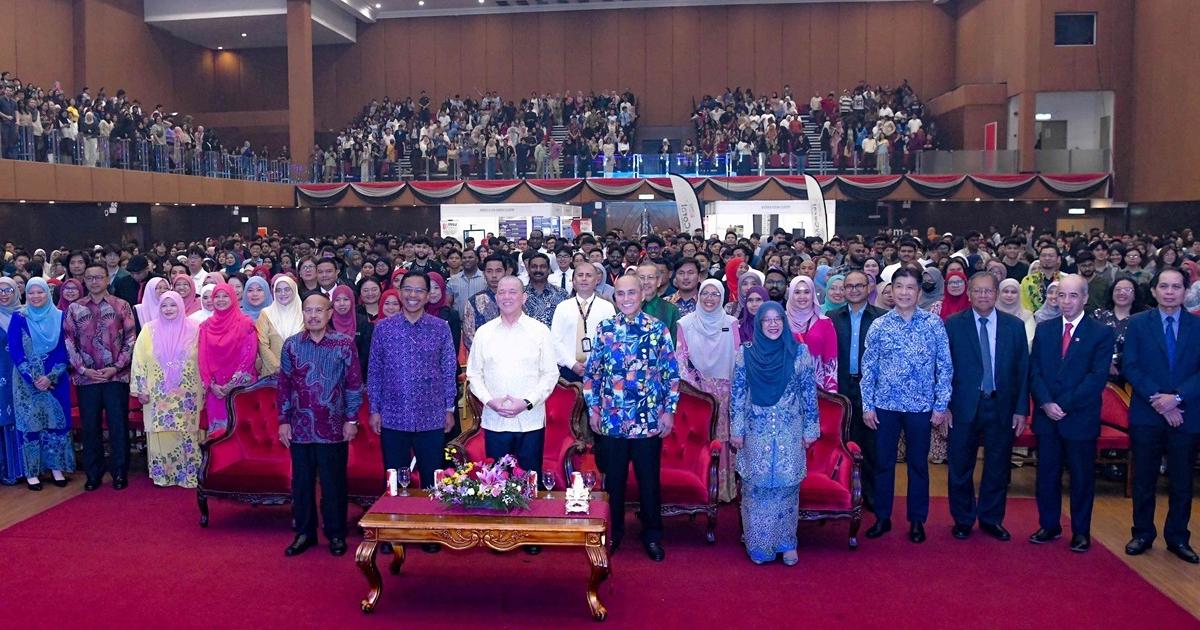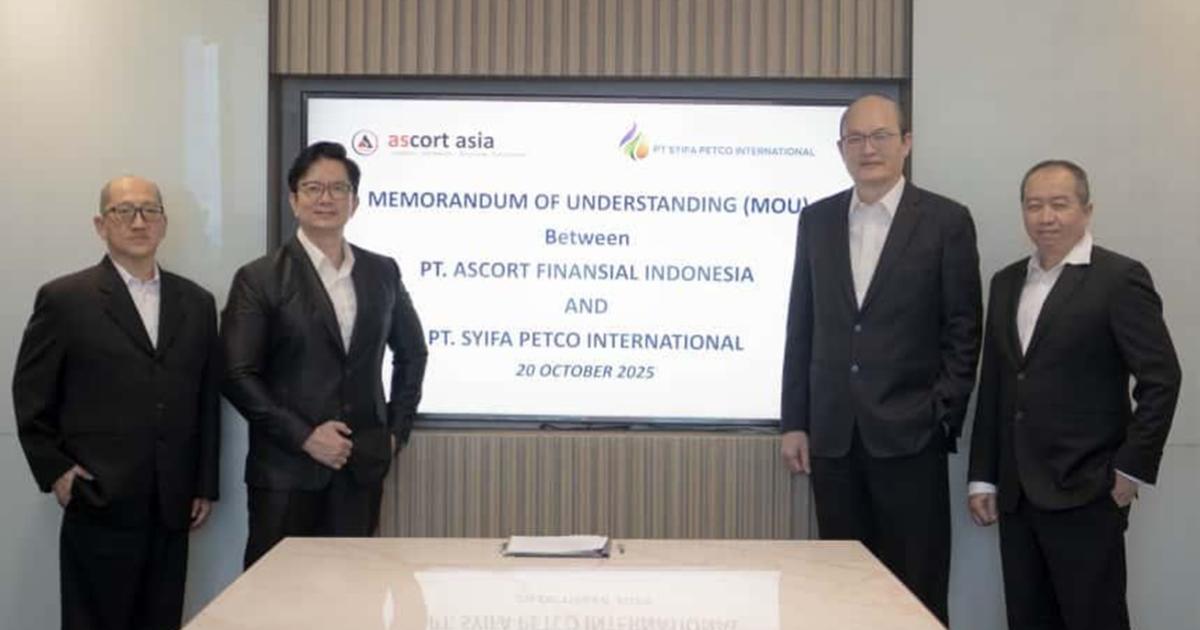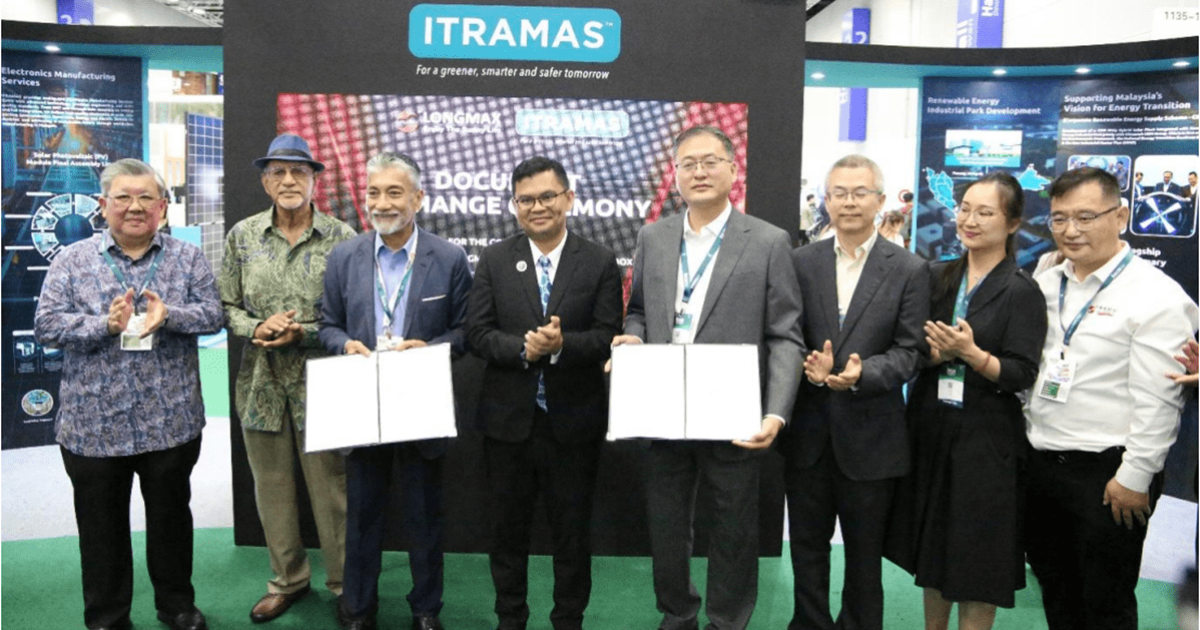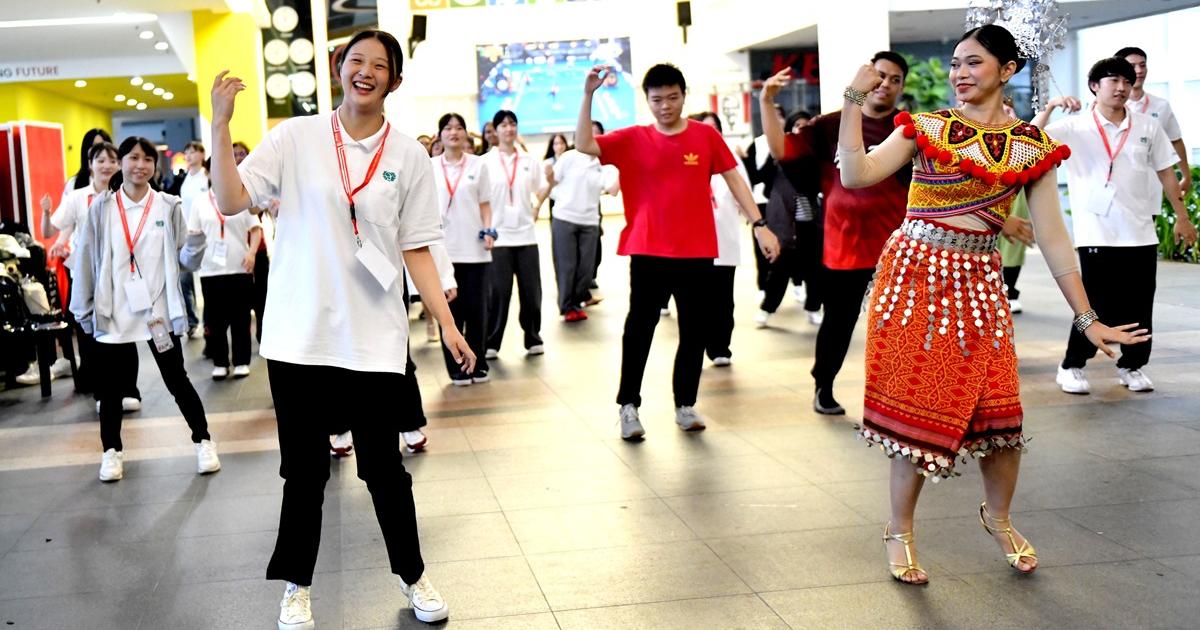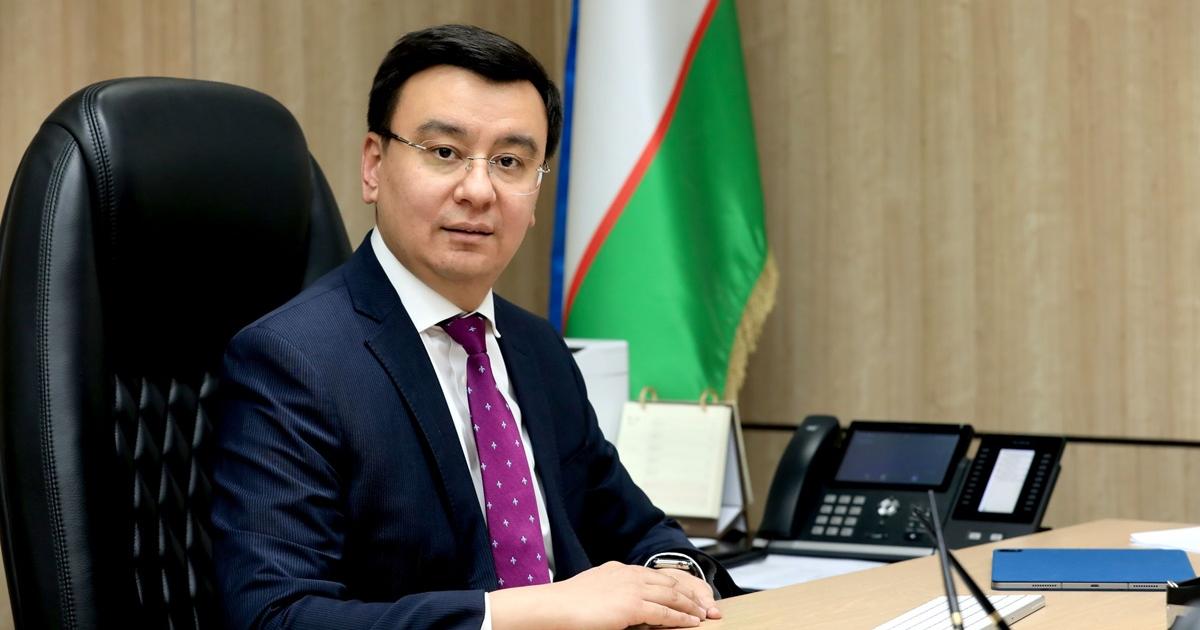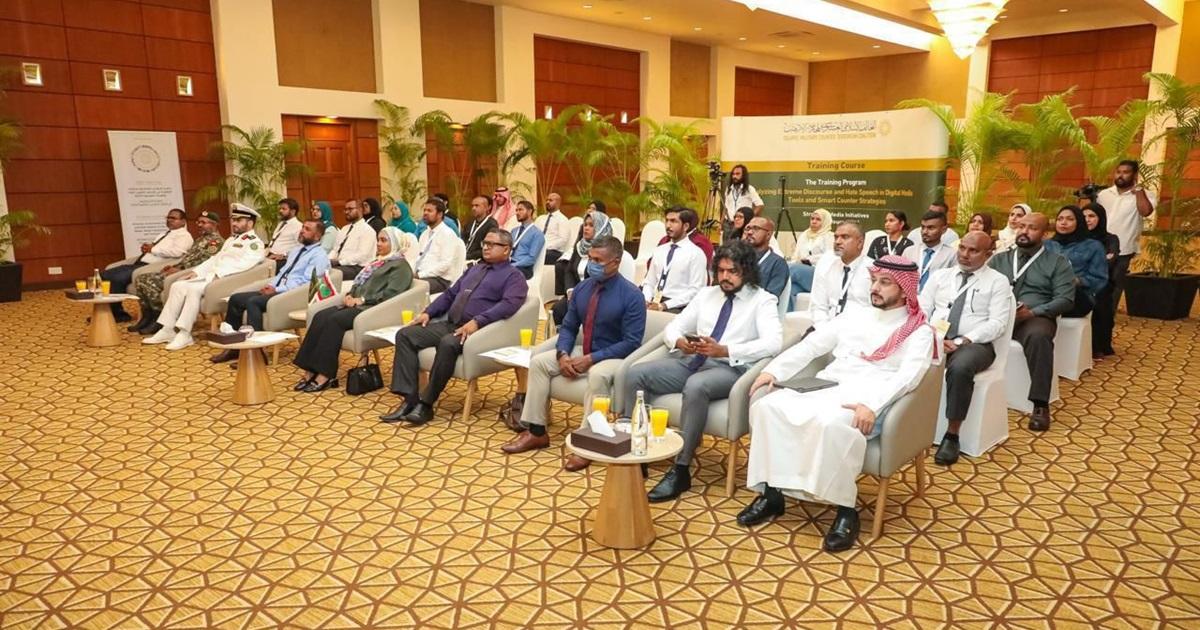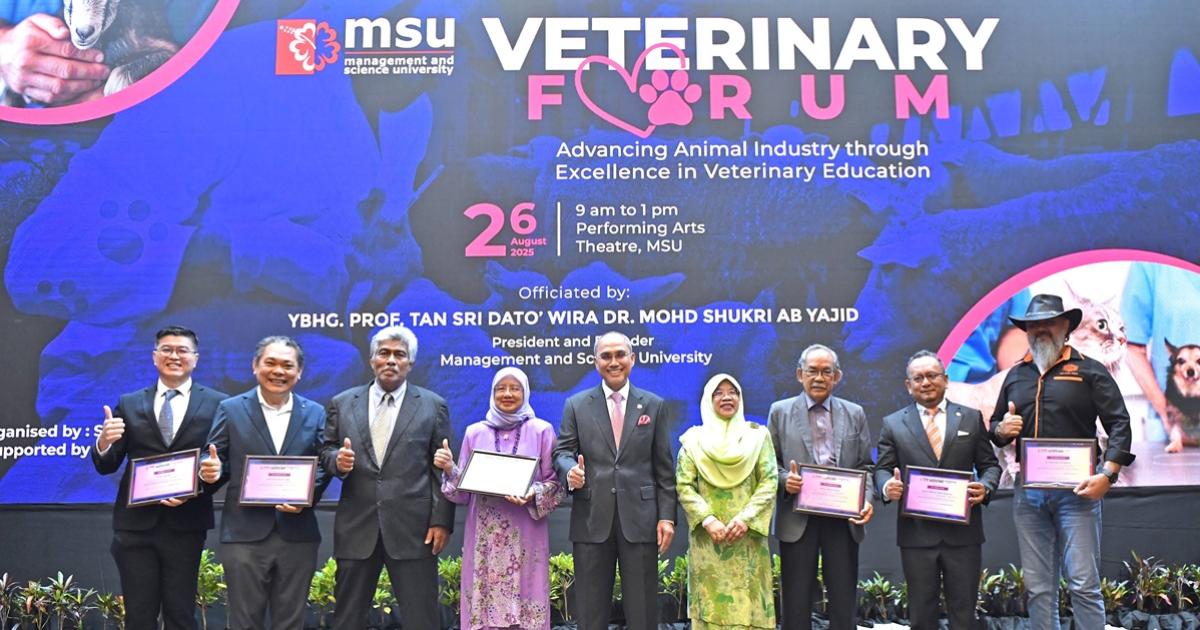
An interview with YB Datuk Seri Dr. Noraini Ahmad , Deputy Minister, Ministry of Women, Family And Community Development Malaysia & President of The Muslim World Women's Summit
As a prominent figure in Malaysian politics and having served as Minister of Higher Education, what key initiatives do you believe are necessary to empower and uplift women in education and academia across the Muslim world?
Datuk Seri Dr. Noraini Ahmad: I believe that empowering and uplifting women in education and academia across the Muslim world require a multi-faceted approach.
Firstly, promoting equal access to education for girls and women is paramount. This can be achieved through the implementation of policies that eliminate gender-based barriers and ensure inclusive and affordable education. Scholarships and financial aid programs should be designed specifically to support female students pursuing higher education.
Secondly, fostering a conducive and supportive environment for women within academic institutions is crucial. This entails creating mentorship programs, leadership development initiatives, and promoting a culture of gender diversity and inclusion.
Encouraging female representation in decision-making bodies and academic leadership positions will play a pivotal role in breaking down traditional gender norms and empowering women to thrive in academia.
Lastly, addressing the gender gap in research and innovation is imperative. Promoting research that focuses on women’s issues, challenges, and contributions will help address the underrepresentation of women in various fields. Collaboration and knowledge-sharing between institutions across the Muslim world can further enhance the impact of such initiatives.
Moreover, providing platforms for showcasing and celebrating women’s achievements in academia can serve as a source of inspiration and motivation for future generations of female scholars.
By implementing these key initiatives, we can create a more inclusive, equitable, and empowering educational landscape that harnesses the full potential of women in the Muslim world, fostering progress and prosperity for all.
Education is the foundation for social and economic development, and by empowering women in academia, we are investing in a brighter future for our societies and our world at large.
With your vast experience in politics and leadership roles, how do you envision bridging the gender gap in various sectors, particularly in business and trade, within the OIC member countries?
Datuk Seri Dr. Noraini Ahmad: In my opinion, bridging the gender gap in various sectors, particularly in business and trade within the OIC member countries, is a priority that demands strategic actions and collaborative efforts.
It is essential to implement policies that promote gender equality and inclusivity in the business world. This includes encouraging OIC member countries to adopt affirmative action measures such as quotas for women’s representation on corporate boards and leadership positions.
Additionally, providing incentives and support for women entrepreneurs and business owners can help level the playing field and foster their participation in various industries.
Furthermore, creating a supportive ecosystem for women’s economic empowerment is crucial. This entails investing in skill development, entrepreneurship training, and access to finance for women-led businesses.
Capacity-building programs, mentorship initiatives, and networking opportunities can equip women with the tools and knowledge needed to succeed in the competitive business landscape.
In parallel, enhancing the visibility and recognition of women’s contributions in trade and commerce is vital. Establishing platforms such as awards and conferences that celebrate successful women in business will not only inspire others but also challenge societal norms and perceptions.
Encouraging knowledge exchange and trade missions between OIC member countries can foster collaboration and create opportunities for women entrepreneurs to access new markets and expand their businesses.
Your career has been marked by significant achievements including some important positions in government and non-government organizations. How can greater female representation in such key positions enhance economic development and cooperation among Muslim nations?
Datuk Seri Dr. Noraini Ahmad: Greater female representation in key positions within government and nongovernment organizations can have a transformative impact on economic development and cooperation among Muslim nations. Diverse perspectives at decision-making levels lead to more inclusive policies and strategies.
Women bring unique insights and experiences to the table, which can help address the specific challenges faced by women in the workforce and society. By crafting policies that empower women economically and socially, we can create a more conducive environment for their active participation in the economy, leading to enhanced productivity and innovation.
Greater female representation can lead to increased collaboration and cooperation among Muslim nations. Women leaders can bridge cultural and societal divides, facilitating dialogue and understanding between nations.
They are often adept at nurturing relationships and building networks, which can promote economic partnerships and trade agreements among countries. Female leaders may also prioritize issues related to women’s economic empowerment and gender equality, forging alliances and partnerships that foster mutual growth and development.
The summit (The Muslim World Women’s Summit 2024) aims to discuss compelling issues and formulate effective strategies. From your perspective, what are the most pressing challenges that Muslim women face today, and how can these challenges be addressed through collective efforts?
Datuk Seri Dr. Noraini Ahmad: The most pressing challenges faced by Muslim women today can be addressed through collective efforts that prioritize gender equality, education, economic empowerment, and the elimination of violence against women.
By working together, governments, civil society, and international organizations can create an enabling environment that empowers women to lead fulfilling lives, contribute to their communities, and drive progress across the Muslim world.
The Muslim World Women’s Summit 2024 serves as a platform to deliberate on these challenges and formulate effective strategies to overcome them, fostering a brighter future for all women in the Muslim world.
From my perspective, Muslim women face several pressing challenges today that require collective efforts to address comprehensively. One of the foremost challenges is gender inequality and limited access to education and economic opportunities.
To tackle this, it is essential to promote policies and initiatives that provide equal access to quality education and skill development for women across the Muslim world. Empowering women through education will enable them to participate fully in the workforce, fostering economic growth and breaking the cycle of poverty. Another significant challenge is the need to challenge and overcome deeply rooted cultural and societal norms that hinder women’s progress.
This requires awareness campaigns, community engagement, and collaborations with religious leaders to advocate for gender equality and women’s rights within the context of Islamic teachings.
Furthermore, violence against women remains a critical issue that demands collective action. Initiatives to combat gender-based violence should focus on prevention,
Having been involved in politics for over three decades, what advice would you give to young women – especially those participating in the summit – who aspire to pursue careers in politics and leadership roles?
Datuk Seri Dr. Noraini Ahmad: Aspiring young women, especially those participating in the summit, who seek careers in politics and leadership roles should embrace their aspirations with courage and tenacity. Having been involved in politics for over three decades, my advice to them is to be fearless and resilient.
Politics and leadership can be challenging, but they should not be discouraged by obstacles or setbacks. Instead, they should learn from their experiences, stay true to their principles, and remain steadfast in their pursuit of positive change.
Investing in education and skill development is paramount. Knowledge is power, and pursuing higher education, attending workshops, and seeking mentorship opportunities will equip them to tackle complex issues and make informed decisions as leaders.
As young women in politics, they have the opportunity to be powerful advocates for gender equality. They should champion the rights of women, promote policies that advance gender equity, and lead by example to inspire others to follow suit.
They should learn from experienced leaders who have navigated the complexities of politics. Seeking wisdom from these individuals can provide invaluable insights and advice as they shape their paths in politics and leadership.
Staying grounded and humble is vital, and they should remember their roots and the communities they serve. Staying connected with the people they represent and letting their experiences and aspirations guide their decisions as leaders is essential.
The OIC-2025 Programme of Action seeks to increase intra-OIC trade. In your opinion, how can women’s active involvement in trade and entrepreneurship contribute to achieving this goal?
Datuk Seri Dr. Noraini Ahmad: As I understand women’s active involvement in trade and entrepreneurship can play a pivotal role in achieving the OIC-2025 Programme of Action’s goal of increasing intra-OIC trade. Indeed, women entrepreneurs bring fresh perspectives and innovative ideas to the business landscape.
By encouraging and supporting women to start and lead businesses, we foster a dynamic and diverse marketplace, leading to the creation of new products and services that cater to the needs and preferences of the OIC member countries’ populations. This diversification can enhance the attractiveness of intra-OIC trade and stimulate demand for goods and services within the region.
Moreover, women’s active participation in trade can lead to the establishment of strong business networks and partnerships among OIC member countries. Through their trade activities, women entrepreneurs can bridge cultural gaps, establish connections, and foster trust between nations, facilitating trade cooperation and collaboration.
Their ability to navigate different cultural contexts can unlock business opportunities and promote seamless trade relations, thereby enhancing intraOIC trade and economic growth.
In brief, women’s active involvement in trade and entrepreneurship can significantly contribute to achieving the OIC-2025 Programme of Action’s goal of increasing intra-OIC trade.
By promoting gender-inclusive trade policies, supporting women entrepreneurs, and empowering them to thrive in the business world, we can harness their potential to drive innovation, build meaningful partnerships, foster sustainable development, and promote economic cooperation among the OIC member countries. Women’s leadership in trade is not only essential for achieving economic prosperity but also for building a more equitable and inclusive future for the entire region.
The Muslim World Women’s Exhibition aims to maximize benefits for women. What policy changes or support systems do you believe are necessary to enable women to fully participate and thrive in the workforce and business landscape?
Datuk Seri Dr. Noraini Ahmad: To enable women to fully participate and thrive in the workforce and business landscape, certain policy changes and support systems are essential.
Most importantly, implementing gender responsive labour laws and policies that promote equal pay for equal work, provide maternity and paternity leave, and prevent workplace discrimination are crucial.
These measures create a fair and supportive environment for women to balance work and family responsibilities, ensuring their meaningful participation in the workforce.
Access to quality childcare services is vital. By establishing affordable and reliable childcare facilities, women can pursue their careers without compromising the care of their children.
This empowers women to focus on their professional growth and contribute their full potential to the business landscape, fostering economic prosperity.
Providing targeted financial support and access to credit for women entrepreneurs is essential. Offering low-interest loans, grants, and investment opportunities tailored to women-led businesses can help overcome financial barriers and boost entrepreneurial ventures.
Governments and financial institutions can work together to create inclusive financial systems that address the specific needs of women in business. Finally, awareness campaigns and gender sensitization programs can challenge societal norms and unconscious biases that hinder women’s progress.
By raising awareness about the value of women’s contributions in the workforce and highlighting successful women role models, these initiatives can create a cultural shift that promotes gender equality and supports women in their professional pursuits.
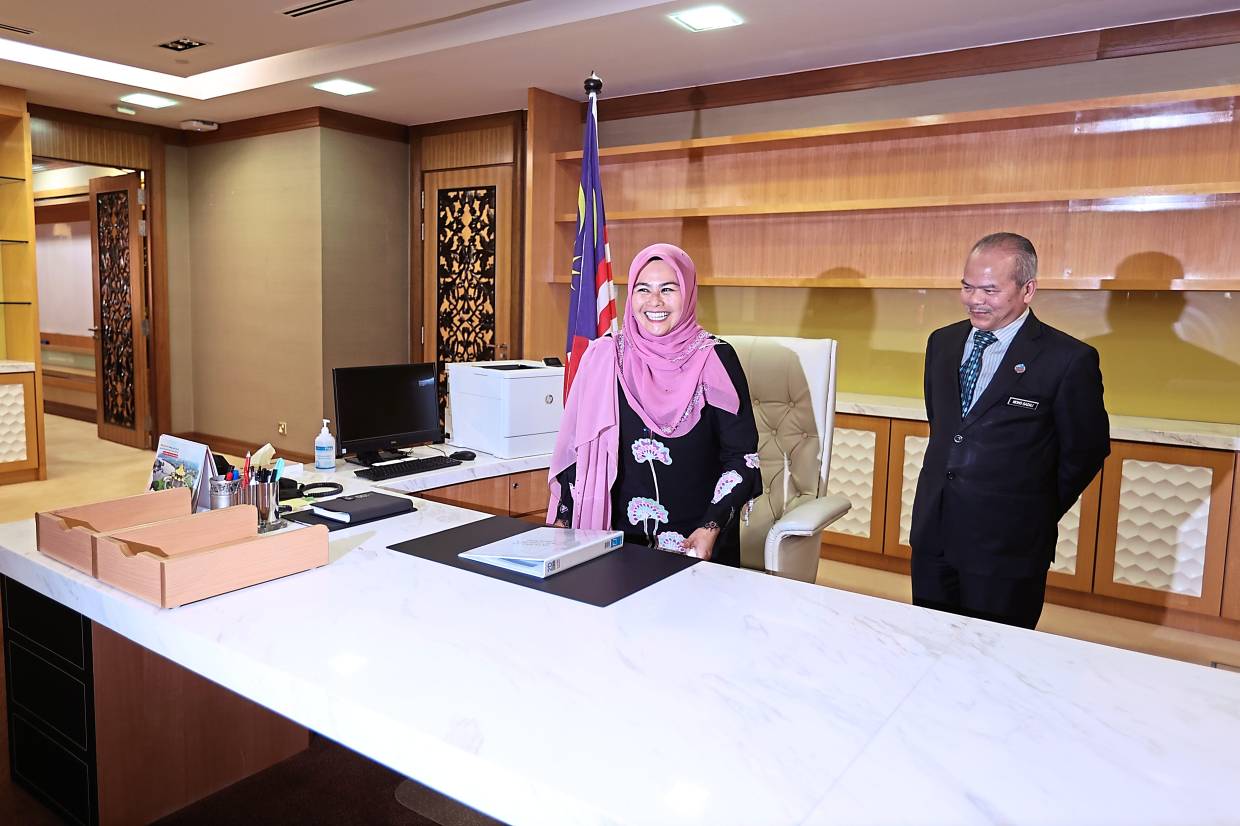
The summit includes the prestigious Muslim World Rania Award. What significance does this award hold for women, and how can it serve as a catalyst for recognizing and promoting outstanding contributions made by women in various fields?
Datuk Seri Dr. Noraini Ahmad: The Muslim World Rania Award holds immense significance for women as it serves as a powerful catalyst for recognizing and promoting outstanding contributions made by women in various fields.
This prestigious award not only celebrates the achievements of women but also sends a strong message of appreciation and recognition for their invaluable contributions to society.
By bestowing this award, the summit acknowledges the transformative impact that women leaders and trailblazers have on their respective fields, inspiring others and breaking barriers along the way. The award holds significance in several ways.
Firstly, it elevates the visibility of women’s accomplishments and accomplishments across the Muslim world. By shining a spotlight on exemplary women leaders, entrepreneurs, scientists, and changemakers, the Muslim World Rania Award encourages other women to pursue excellence in their chosen domains and to aspire to make a positive difference in their communities.
Secondly, the award serves as a platform to foster dialogue and collaboration among women from diverse backgrounds and disciplines. By bringing together outstanding women achievers under one umbrella, the award ceremonies facilitate knowledge exchange, networking, and the sharing of best practices. This leads to the formation of valuable connections and partnerships that can further amplify the impact of their contributions.
In a nutshell, the Muslim World Rania Award holds tremendous significance for women as it catalyzes recognizing and promoting outstanding contributions made by women in various fields.
By celebrating their achievements, fostering collaboration, inspiring empowerment, and challenging societal norms, this prestigious award plays a pivotal role in advancing gender equality and fostering an environment where women can thrive and shape a more inclusive and progressive Muslim world.
Could you share insights into your journey of life and the inspiration behind your works? Additionally, what are your future plans or projects within the realm of empowering women, especially in leadership positions?
Datuk Seri Dr. Noraini Ahmad: My journey in politics and leadership roles has been marked by the belief that women’s voices and perspectives are vital in shaping policies and strategies that address the needs of the entire community.
As the President of the Muslim World Women’s Summit 2024, my vision is to create a platform that fosters collaboration and empowerment among women from diverse backgrounds.
Through the summit, I aim to promote dialogues, share experiences and recognize outstanding women leaders who have made significant contributions to society. This prestigious event will not only celebrate achievements but also inspire young women to aspire to leadership positions and contribute to their communities.
Looking to the future, my plans include continuing my advocacy for gender equality and women’s empowerment in various capacities. I envision establishing mentorship programs that pair experienced women leaders with aspiring young women, providing them with guidance and support to excel in their chosen fields.
Additionally, I intend to collaborate with organizations and institutions to promote policies and initiatives that advance women’s representation in decision making bodies and leadership positions.
Furthermore, I am committed to working with governments and stakeholders to create an enabling environment for women entrepreneurs. By providing them with access to finance, training, and mentorship, we can unlock their potential to drive economic growth and create employment opportunities for others. In essence, my journey has been driven by a deep-rooted passion for empowering women and promoting gender equality. The Muslim World Women’s Summit 2024 serves as a milestone in my commitment to fostering positive change and celebrating the achievements of women across the Muslim world.
As I move forward, I am determined to continue my work in empowering women, enabling them to take on leadership positions, and contributing to a more inclusive and equitable society.
- Business News 100
- Country News 16
- Feature News 30
- International News 151
- Interview News 35
- National News 18





